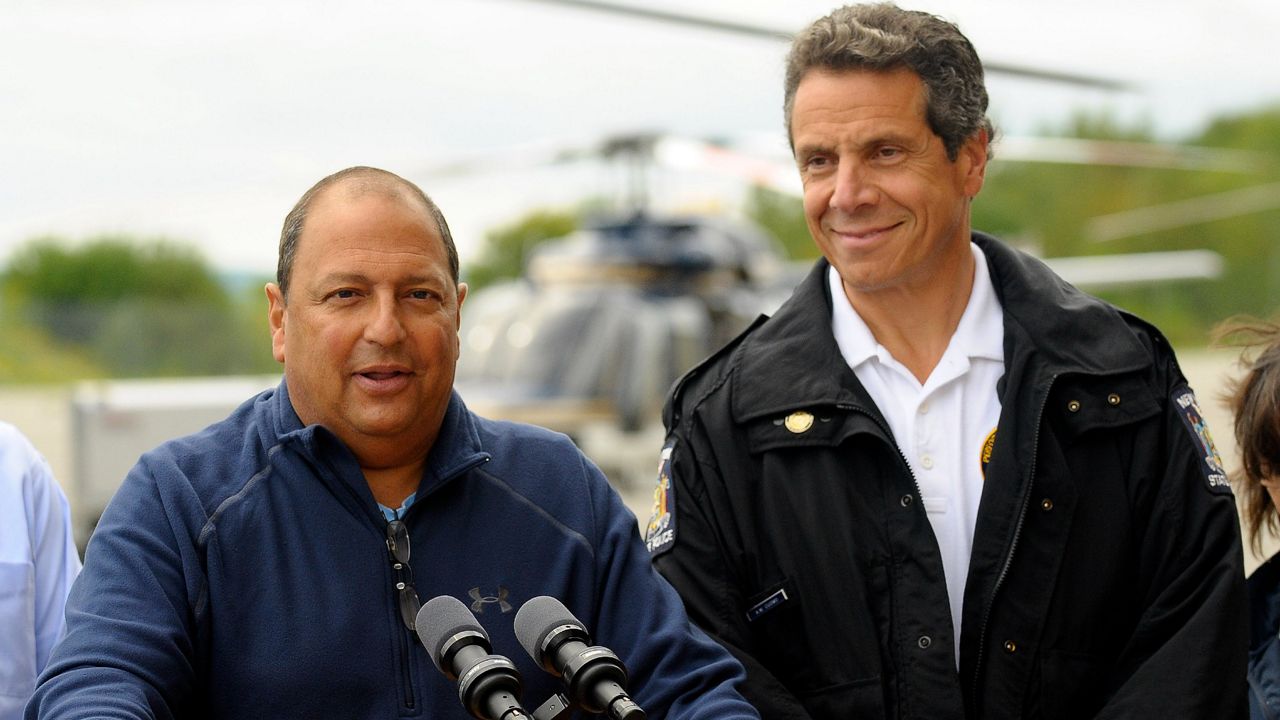Ten years ago, the No. 2 Republican in the state Senate saw nothing out of the ordinary about airing a TV ad in his re-election campaign that touted his great relationship with Democratic Gov. Andrew Cuomo.
After all, Cuomo was a popular first-term executive who had successfully championed a property tax cap and slowed spending growth in the state budget. But what would prove to be a temporary alliance with Republicans in the state Senate a decade ago is resurfacing in this year's race for governor.
Republican gubernatorial hopeful Harry Wilson on Friday released an ad blasting one of his rivals for the GOP nomination, Rep. Lee Zeldin, for voting for budgets during Cuomo's first term while he was in the state Senate. Zeldin during that time even suggested Cuomo would make a better president than Barack Obama.
Zeldin was hardly alone in his Republican praise of Cuomo at the time. State Republican Chairman Ed Cox said Cuomo was wearing "Republican clothes" and it was the party's job to make sure he wore them right.
The late Sen. Tom Libous, the lawmaker who aired the ad prominently featuring Cuomo, said at the time it was a no-brainer.
“All I heard constantly for the last year and a half was people stopping me saying, ‘Libous, we like what you’re doing with Cuomo. Keep it up,’ ” Libous told The New York Times at the time. “It wasn’t rocket science for me to figure out.”
The context from a decade ago: Cuomo and the Senate Republicans were aligned, a relationship of convenience for the two sides that would carry on for several years.
The state Senate was the final lever of power Republicans controlled in New York. Cuomo mistrusted the Democrats in the state Senate, too, following their chaotic two years in the majority from 2009 to 2011.
A rump caucus of originally four Democrats, the Independent Democratic Conference, would also ally themselves with Republicans in the Senate and help them keep a working majority.
And Republicans were also eyeing the 2012 round of redistricting, during which Cuomo had vowed to create an independent mechanism for drawing new legislative boundaries that took the pen out of the hands of lawmakers.
Ultimately, Cuomo struck a deal with the Democrats in the Assembly and Republicans in the Senate to allow them to draw the maps that year and create an independent commission through a constitutional amendment for the next round in 2022 (and we now know how that turned out).
Eventually, the bottom fell out in the relationship. Cuomo would push through a gun control package in 2013 in the wake of the Sandy Hook Elementary School shooting that Republicans begrudgingly allowed to be voted on in the Senate.
After securing a second term in 2014, Cuomo imposed an administrative ban on high-volume hydrofracking in the state, disappointing Republicans — including Libous, whose district in the Southern Tier would have been a site for natural gasa extraction — who had pushed for the opposite outcome.
Cuomo had often cited his ability to work with Republicans in the Legislature, who also enabled arguably his most impactful victory, the legalization of same-sex marriage in 2011, contrasting it with the gridlock and polarization in Washington.
But Albany eventually would not be immune to the same tidal forces in politics that have engulfed Congress and capitols across the country.



